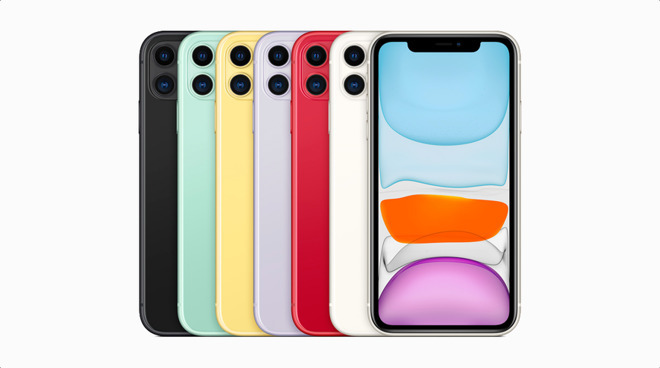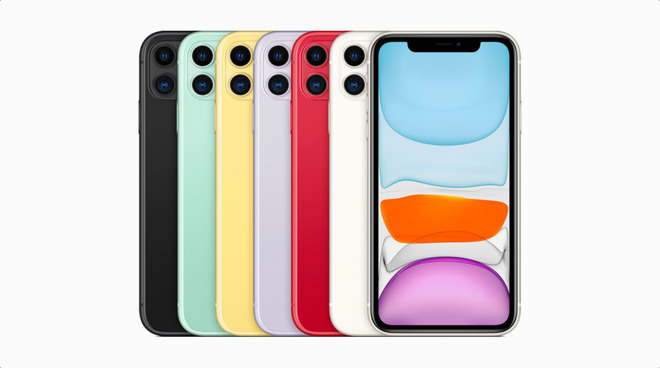Apple on Monday denied a public request from U.S. Attorney General Bill Barr to unlock iPhones owned by a Saudi Air Force cadet accused of killing three people at a naval base in Pensacola, Fla., refuting the AG’s claim that it has not provided “substantive assistance” in the investigation.

In a statement issued to Input late today, Apple rebutted Barr’s characterization of the situation, saying it has responded to all law enforcement requests for help in the extraction data from two iPhones belonging to Mohammed Saeed Alshamrani. Alshamrani is suspected of gunning down three sailors and injuring eight others in an attack at the Naval Air Station in December.
“We reject the characterization that Apple has not provided substantive assistance in the Pensacola investigation. Our responses to their many requests since the attack have been timely, thorough and are ongoing,” Apple says.
The company promised to continue to provide assistance to the Federal Bureau of Investigation operation as the case evolves.
The statement goes on to detail a number of authorizations for legal gathering of user data including iCloud backups, account information and “transactional data” for multiple accounts linked to the shooting. As noted in its bi-annual transparency report, Apple regularly agrees to legitimate law enforcement requests. These may take the form of warrants, direct requests or, in rare cases, national security letters.
What the company will not, and indeed cannot, do is break iPhone’s hardware and software encryption. As explained by Apple, once a device is locked, data stored within cannot be accessed without successful entry of a passcode or password. Engineers can theoretically break into a locked iPhone by writing custom software, also known as a backdoor, but doing so would set a dangerous precedent and put all customers at risk of privacy violations, Apple argues.
“We have always maintained there is no such thing as a backdoor just for the good guys. Backdoors can also be exploited by those who threaten our national security and the data security of our customers,” the statement reads.
Earlier today, Barr applied pressure by airing a public plea targeting Apple’s supposed lack of cooperation. Investigators asked the iPhone maker to “unlock” Alshamrani’s handsets in a letter to the company last week, mirroring demands made during a similar investigation into the San Bernardino shooting in 2016.
With a staunch and loudly advertised commitment to user privacy, and products designed to keep information safe from prying eyes, Apple often finds itself caught between civic duty and the customers it serves. So far, the U.S. government has been loath to fully prosecute the matter, though it did threaten a court showdown over San Bernardino before withdrawing at the eleventh hour. In that case, the FBI turned to an unnamed third party to penetrate an older model iPhone’s security wall to extract target data.
Apple’s full statement:
We were devastated to learn of the tragic terrorist attack on members of the US armed services at the Naval Air Station in Pensacola, Florida on December 6th. We have the greatest respect for law enforcement and routinely work with police across the country on their investigations. When law enforcement requests our assistance, our teams work around the clock to provide them with the information we have.
We reject the characterization that Apple has not provided substantive assistance in the Pensacola investigation. Our responses to their many requests since the attack have been timely, thorough and are ongoing.
Within hours of the FBI’s first request on December 6th, we produced a wide variety of information associated with the investigation. From December 7th through the 14th, we received six additional legal requests and in response provided information including iCloud backups, account information and transactional data for multiple accounts.
We responded to each request promptly, often within hours, sharing information with FBI offices in Jacksonville, Pensacola and New York. The queries resulted in many gigabytes of information that we turned over to investigators. In every instance, we responded with all of the information that we had.
The FBI only notified us on January 6th that they needed additional assistance — a month after the attack occurred. Only then did we learn about the existence of a second iPhone associated with the investigation and the FBI’s inability to access either iPhone. It was not until January 8th that we received a subpoena for information related to the second iPhone, which we responded to within hours. Early outreach is critical to accessing information and finding additional options.
We are continuing to work with the FBI, and our engineering teams recently had a call to provide additional technical assistance. Apple has great respect for the Bureau’s work, and we will work tirelessly to help them investigate this tragic attack on our nation.
We have always maintained there is no such thing as a backdoor just for the good guys. Backdoors can also be exploited by those who threaten our national security and the data security of our customers. Today, law enforcement has access to more data than ever before in history, so Americans do not have to choose between weakening encryption and solving investigations. We feel strongly encryption is vital to protecting our country and our users’ data.
